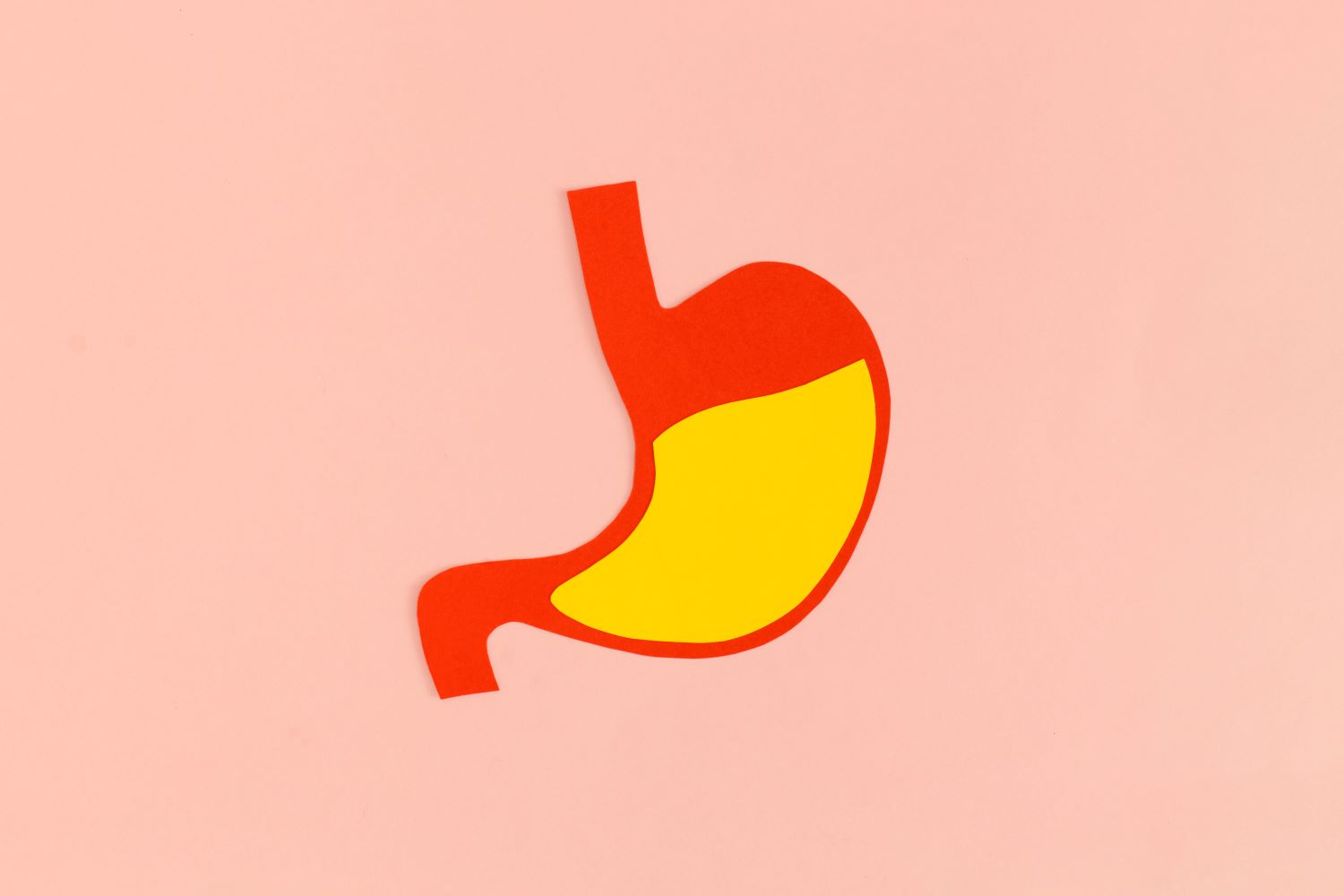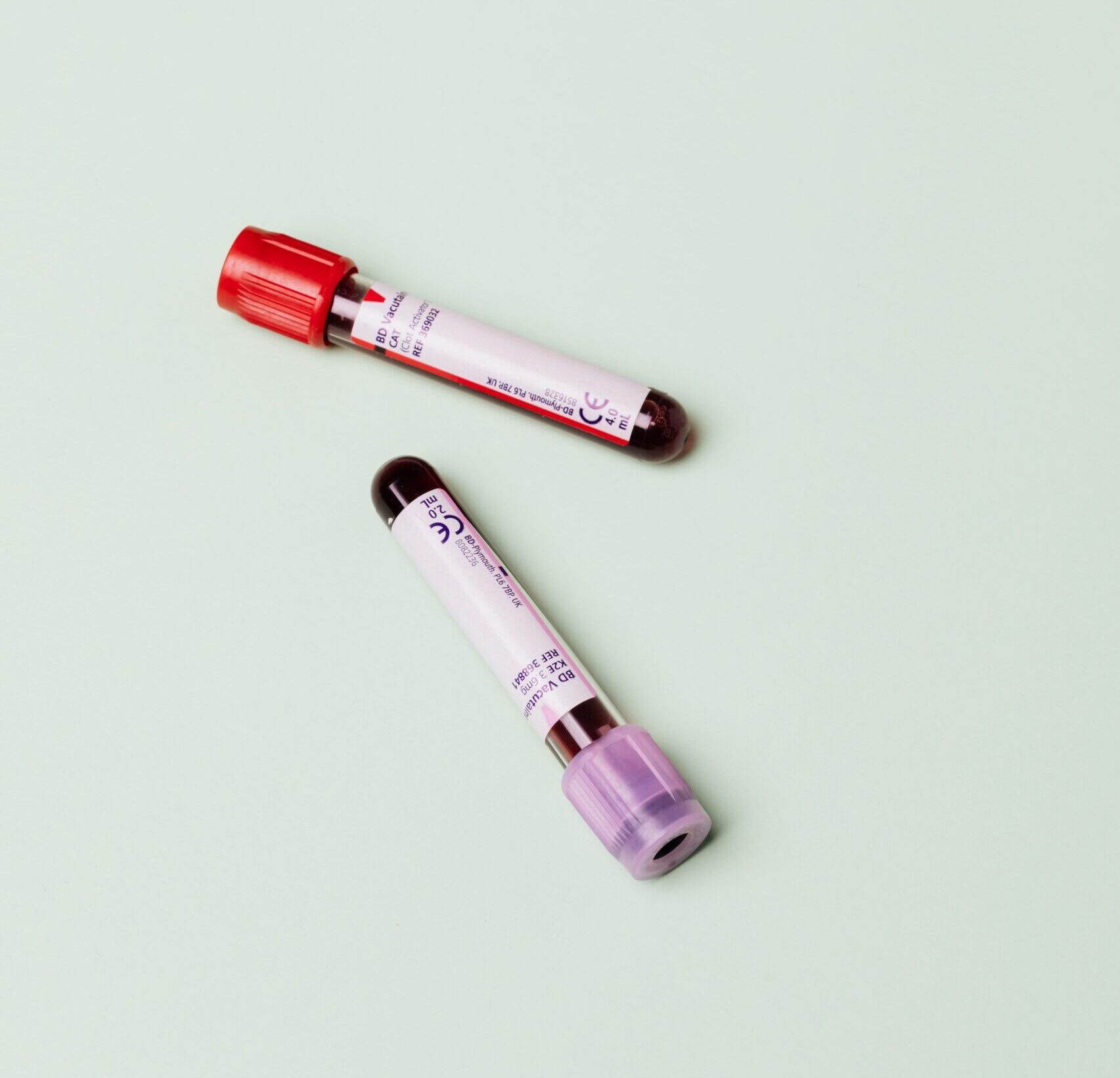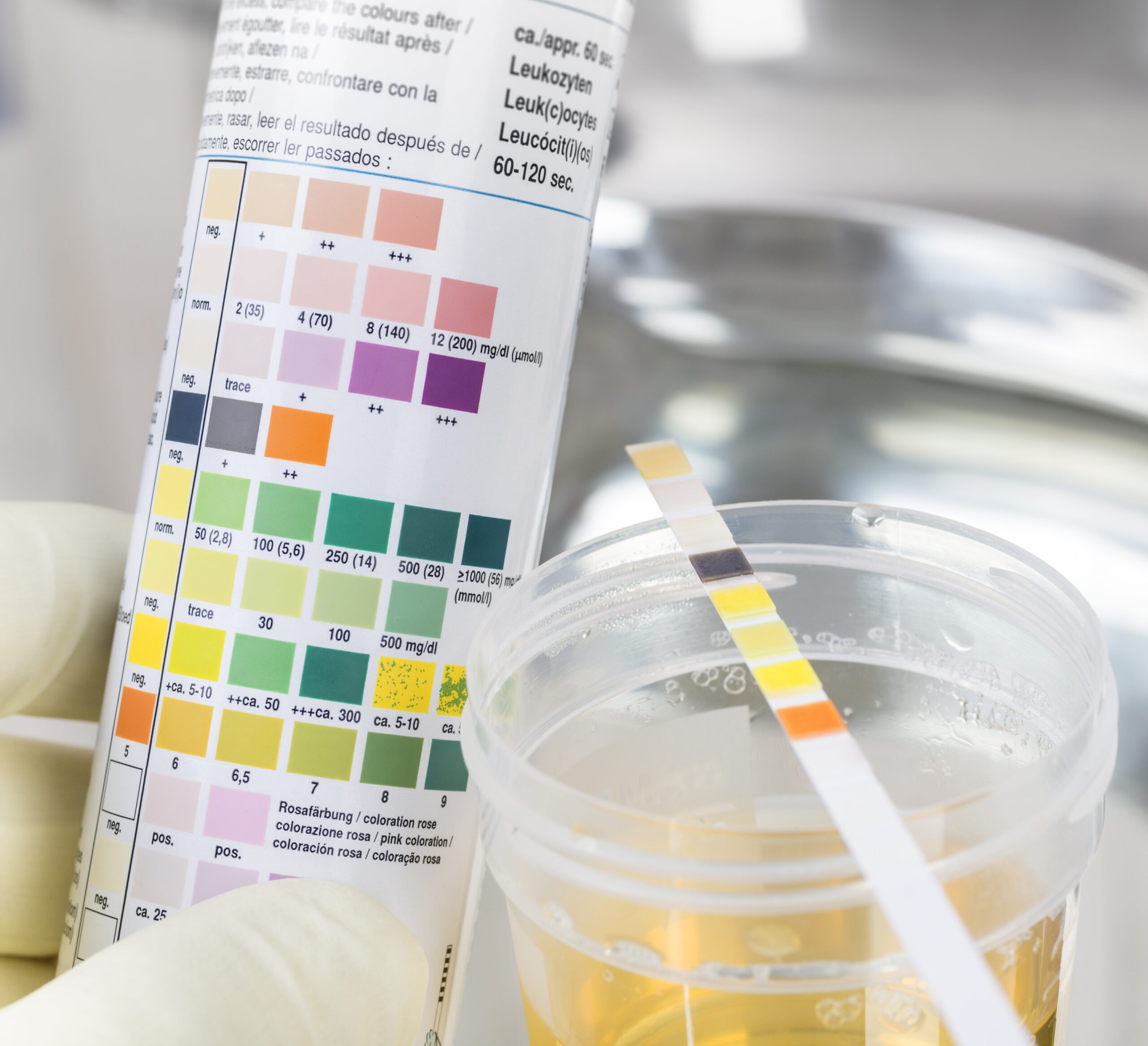Leaky Gut
The small and large intestines measure over 20 feet in combined length. These hollow organs are a crucial gastrointestinal (GI) system component. When they don’t work properly, digestive issues may ensue.
One such issue is leaky gut. Unfortunately, the medical community has yet to recognize this condition with a full diagnosis. Instead, experts call it a syndrome – a group of symptoms without an easily identifiable cause.
Yet, just because there is no formal diagnosis does not mean leaky gut symptoms are no big deal.

How We Help
Leaky gut syndrome is a collection of digestive symptoms caused by increased permeability of the intestinal lining. While researchers are not 100% sure why this occurs, they believe unhealthy changes to the gut microbiome could play a role in the development of this syndrome.
Are you tired of suffering from the symptoms of leaky gut? Revolution Gut Health can help you change your gut health- and your life. Book a consultation with Revolution Gut Health today to start your journey to a healthier you.
Disclaimer: The health information on this site is provided for general informational and education purposes only and is not a substitute for professional advice. Accordingly, before taking any actions based upon such information, we encourage you to consult with the appropriate professionals. The use or reliance of any information contained on this site is solely at your own discretion. Revolution Gut Health does not claim to heal, treat or cure any of the conditions mentioned.
What Is Leaky Gut?
Leaky gut, also known as leaky gut syndrome, is a mysterious condition featuring symptoms like bloating, excess gas, stomach cramps, food sensitivities, and general aches and pains.
We say it is mysterious because doctors and researchers do not know much about the condition. Leaky gut, also known as increased intestinal permeability, may occur when the health of the gut’s lining declines.
Healthy intestines allow nutrients from digested foods to diffuse into the bloodstream. These nutrients are small enough to fit through the microscopic gaps in the intestinal lining. In the case of leaky gut, these gaps can get bigger and allow other substances to leak through.
These substances may include particles of partially digested food, waste products, and gut bacteria, viruses, fungi, and parasites. As these substances invade deeper layers of the digestive tract, they may trigger an inflammatory response.


Research has shown how increased gut inflammation may lead to changes in the gut microbiome. The microbiome is the collection of beneficial bacterial species that live inside the gut and digestive tract.
When the gut microbiome changes, a whole host of problems may occur. Some changes can be good, especially for someone with an unhealthy microbiome. However, more commonly, these changes can increase the risk of disease.
Additionally, changes to the microbiome due to a leaky gut may play a role in developing other conditions. These conditions may affect the digestive system alone or have more widespread impacts on the brain and certain chronic diseases.
Signs and Symptoms of Leaky Gut
Leaky gut syndrome symptoms can be tricky to identify. They are general and attributable to dozens of other disorders. Moreover, there is no test exclusively for the diagnosis of leaky gut.
With this in mind, most experts look to common symptoms people experience from intestinal permeability. However, note that this type of intestinal permeability happens after injury to the gut lining.
As mentioned, leaky gut symptoms may include general digestive complaints, such as stomach cramps and food sensitivities. Other possible symptoms of leaky gut may include:
- Stomach pain, especially a burning sensation from ulceration
- Diarrhea
- Painful indigestion due to intestinal mucosa loss
- Excessive gas and bloating when bacterial overgrowth increases the rate of gut fermentation
- Low energy or fatigue from inefficient nutrient absorption
People should also look out for signs that leaky gut may be impacting other areas in the body. For example, the emergence of one or more autoimmune conditions may be a sign. Mood disorders and certain chronic diseases may also indicate a leaky gut.
Have A Question?
Contact our team for a FREE discovery call.
Not accepting new patients at this time
Causes of Leaky Gut
Just like the symptoms of leaky gut, experts do not yet fully understand its cause(s). One thing that is known is that symptoms start with increased permeability of the intestinal lining. Increased permeability means that the intestine has faulty tight junctions (TJs). TJs act like filters, dictating what can and cannot get through the small intestinal lining and into the bloodstream. Yet, the bigger question is: how do TJs stop working properly in the first place? Different theories are based on whether someone has pre-existing health conditions or is in good health.
Diet & Lifestyle Choices
Poor food choices and unhealthy way of life can both contribute to the Leaky Gut Syndrome. Processed foods, refined sugars, and artificial ingredients can throw off the balance of gut bacteria and damage the intestinal lining. Chronic stress, not getting enough sleep, and drinking too much alcohol can also make the condition worse.
Environmental Factors & Toxins
Toxins, whether they be endotoxins or those produced by unbalanced gut microbes, are a crucial piece of the puzzle. Avoidance and detoxification become big players in improving these conditions, which can lead to very complicated immune-related diseases. Pollutants, heavy metals, pesticides, and even some medicines can damage the tight junctions and make them more permeable. It’s important to be aware of our surroundings and take steps to avoid getting too close to things that could hurt us.
Leaky Gut in People With Pre-Existing Health Conditions
Scientists know conditions like Crohn’s and celiac disease impact TJs. Specifically, these conditions change levels of zonulin. Zonulin is a protein essential for regulating tight junctions.
Here’s an example of this theory in action. Research shows that gluten can trigger higher zonulin levels in people with celiac disease. Higher zonulin levels lead to reduced TJ function and increased intestinal permeability.
These findings may explain why some people with pre-existing health conditions develop leaky gut syndrome. However, they don’t explain why some generally healthy people have leaky gut.

Leaky Gut in Healthy People
One proposed mechanism of how leaky gut happens in generally healthy people has to do with zonulin again. Aside from Crohn’s and celiac, bacterial imbalances in the gut impact levels of this protein.
The most common causes of unhealthy changes in gut bacteria include:
- Increasing consumption of protein, sugar, or certain food additives
- Environmental toxins
- Drinking more than one alcoholic beverage a day
- Starting a new medication, especially an antibiotic
- Being in poor oral health
- Experiencing high levels of stress
- Having unprotected sex
Another possible cause of leaky gut in healthy individuals is misusing nonsteroidal anti-inflammatory drugs (NSAIDs). Over-the-counter NSAIDs like aspirin and ibuprofen may damage the intestinal lining. The damage may, in turn, lead to leaky gut symptoms.
Genetics could also play a role. Tumor necrosis factor (TNF) and interleukin 13 (IL-13) are two components of the inflammatory response. Multiple studies have found a connection between higher levels of these compounds and increased intestinal permeability.
How to Diagnose Leaky Gut
As mentioned, there is no formal diagnostic procedure for leaky gut syndrome. Similarly, doctors do not have a standard test to identify levels of intestinal permeability, whether higher or lower.
Researchers are currently hard at work identifying the best test to diagnose this syndrome. So far, top contenders include urinalyses, blood testing, tissue biopsies, and confocal endomicroscopy.
Leaky Gut Test
Each test used looks for a different biomarker of leaky gut syndrome. For example, blood tests are used to identify if any bacteria originating from the GI tract is in the bloodstream.
Conversely, tissue biopsies investigate samples directly from the intestines. Experts then analyze the tissue’s ion transport rate. In basic terms, the test identifies how well or poorly the intestines transport water across the lining.
Confocal endomicroscopy is the most extensive procedure. It is a type of endoscopy, a test to visually examine the inside of the body. This type of endoscopy allows a view of the intestinal lining to identify if there are any gaps.
The most common test used to identify leaky gut is urine testing. Also known as urinalysis, urine testing involves testing urine for the presence of sugar after drinking a solution of mannitol or lactulose.


How to Test for Leaky Gut at Home
The simplest way to test for leaky gut at home is with a urinalysis. The first step is to consume a mixture of water, mannitol, and lactulose. Mannitol and lactulose are sugars of differing sizes.
Mannitol is a smaller sugar molecule that healthy intestinal linings tend to absorb easily. Lactulose is much larger. As such, the intestinal lining has a harder time absorbing whole lactulose molecules.
For the next six hours, individuals must collect periodic urine samples. The samples are then sent in for lab testing, which examines them for lactulose and mannitol. The more of these sugars in the samples, the less the intestinal lining absorbed them.
After receiving the results, people may not know what they mean. Healthy tests will show higher levels of mannitol than lactulose. Equally high or low levels of both sugars may indicate leaky gut syndrome or poor nutrient absorption.
How to Heal Leaky Gut
Leaky gut treatment begins with understanding the underlying cause(s). Once doctors know the reason for the increased intestinal permeability, they can design a treatment plan.
For example, say the underlying issue is a pre-existing condition like IBS. In that case, the best way to heal a leaky gut may be to treat the IBS symptoms.
However, as mentioned, not all leaky gut symptoms come from underlying health conditions. Keep reading to learn the best treatments for leaky gut in otherwise healthy individuals.
How to Heal Leaky Gut Naturally
A holistic approach is the best way to treat Leaky Gut Syndrome. The goal is to improve the health of the lining of the gut and the health of the gut as a whole. Some common ways to treat the problem:
Eat a gut-friendly diet. Give up foods that cause inflammation—processed foods, gluten, dairy, and sugar. Instead, eat whole foods with fiber, antioxidants, and nutrients. Supplements—like probiotics, glutamine, and digestive enzymes—may also help the gut heal. Eat a diet that is well-balanced and full of whole foods, like fruits, vegetables, lean proteins, and healthy fats. Fermented ingredients like yogurt and kimchi can help with healing.
Make positive changes to your life. Manage stress with yoga, meditation, deep breathing, tai chi, spend time in nature and get regular exercise to reduce inflammation and improve gut health.
Get enough quality sleep.
Stay hydrated.
Avoid processed foods, refined sugars & additives
Watch portions and eat slowly.
Make regular physical activity a priority.
Choose natural and organic products.
Avoid alcohol and smoking
Include supplements like Vitamin D, Zinc and Omega-3 fatty acids.
Dealing with Leaky Gut Syndrome requires a complete plan that includes changes to your diet, lifestyle, and targeted supplements. Improve your overall quality of life by taking steps to keep your intestinal barrier healthy. Leaky Gut Syndrome needs to be taken care of carefully proactively.
Signs Leaky Gut Is Healing
Reducing or Eliminating Symptoms
The first sign of a healing gut is reducing or eliminating symptoms. Individuals may experience less stomach pain and diarrhea. Bloating and gas may decrease, indigestion may improve, and people may feel more energized.
Lab Testing Improvements
A more concrete way to identify a healing gut is to get another urinalysis. Lab testing can identify improvements in levels of mannitol versus lactulose and other biomarkers of excellent gut health.
Common Co-Occurring Disorders
The gut makes up 70% of the immune system. One issue with gut health can compound, leading to other conditions. As such, it makes sense that leaky gut syndrome often co-occurs with other diseases and disorders.
Moreover, researchers have started to realize the gut and the brain are intimately connected, too. When the gut is unhealthy, it may impact brain functions.
Two common conditions that occur alongside leaky gut are thyroid disorders and autism.
Leaky Gut and Thyroid Disorders
The thyroid is a gland in the neck. Its primary function is to produce and release certain hormones. These hormones regulate energy and metabolism throughout the brain and body. They also help control vital functions.
When the thyroid makes too many or too few hormones, it can lead to health issues, such as:
- Goiter
- Hyperthyroidism
- Hypothyroidism
- Thyroid cancer
- Thyroiditis
Research in animals has discovered an association between these and other thyroid conditions and gut health problems. Some experts even believe that thyroid dysfunction could cause leaky gut. However, more clinical research is needed to know for sure.
Leaky Gut and Autism
Two studies have found a correlation between autism and leaky gut-related microbiome disturbances. However, experts do not yet understand the directionality between the two conditions or if there is any at all.
In other words, we don’t yet know if gut microbiome imbalances are a risk factor for autism or if it is the other way around. Further, we need more research to identify whether microbiome disturbances are a cause or a risk factor of autism or just an unfortunate coincidence.
Additional Resources
Leaky Gut vs SIBO: What’s the Difference?
Many people deal with common digestive symptoms like bloating, excess gas, constipation, diarrhea, and stomach pain. Yet, these symptoms are general, meaning they could arise from many conditions. However, these uncomfortable symptoms could...
Unlock a healthier you today!
Take the first step towards a happier, healthier life with our FREE discovery call.
Not accepting new patients at this time
